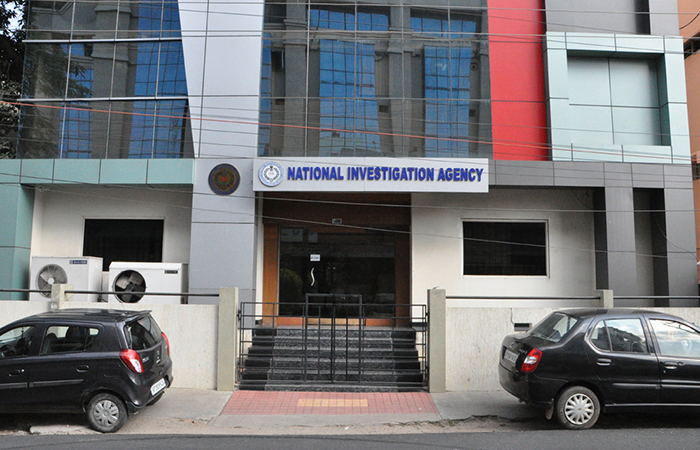This article is written by Monesh Mehndiratta. The present article provides a detailed analysis of the landmark judgment in the case of Abhayanand Mishra v. The State of Bihar (1961). It provides the facts of the case, issues involved therein, judgment of the court and opinion of judges. It further explains the law applied and provides a critical analysis of the case and goes on to explain the difference between attempt and preparation with the help of different theories of attempt.
This article has been published by Shashwat Kaushik.
Do you know the difference between attempt and preparation?
Well, let me explain it with an example.
We all prepare for exams by making notes, studying and understanding the concept and then write the exam. The stage of preparation of notes, understanding the concept, and learning important points is the stage of preparation. When we sit and write the exam, it is an attempt. This is because we have taken one step further from the stage of preparation towards the final stage, i.e., the result.
Similarly, in the case of crime, the stage of preparation is when a person is preparing to commit a crime and collecting required material like weapons, making plans, discussing with other criminals, etc. As soon as he does an act in furtherance towards the commission of a crime, it is an attempt to commit the crime. For example, a person bringing a gun to commit the offence of murder is preparation, but the moment he tries to shoot amounts to an attempt irrespective of whether anyone was shot by the gun or not. The difference between the two can be understood better with the help of the present case discussed in the article, i.e., Abhayanand Mishra v. The State of Bihar (1961). The article explains the facts of the case, the issues involved, judgement of the court, opinion of judges, laws applied and its analysis
Name of the case
Abhayanand Mishra v. The State of Bihar
Citation
1961 AIR 1698, 1962 SCR (2) 241, 1961 (2) CRI. L. J. 822, (1962) 3 SCR 241
Date of judgement
24.04.1961
Bench
Justice Raghubar Dayal, K. Subbarao
Name of the appellant
Abhayanand Mishra
Name of the respondent
State of Bihar
Law Involved
Sections 420 & 511 of the Indian Penal Code, 1860
The facts of the case are such that the appellant applied to appear in the M.A. Examination in English at Patna University in 1954 as a private candidate. He represented himself as a graduate who obtained a B.A. Degree in 1951. He also represented himself as a teacher by attaching certificates from the headmaster of the school and inspector of schools in his application. The University, as a result of his application, allowed him to appear for the M.A. Examination and asked him to remit the required fees and submit his photographs. When the appellant fulfilled the above requirements, his admission card was dispatched to the headmaster of the school.
However, the University was informed that the appellant is neither a graduate nor a teacher as a result of which inquiries were conducted revealing that all the documents furnished with the application were forged. The appellant not only lied about the fact of him being a graduate and a teacher but also the fact that he had been debarred from taking any University examination for a certain number of years because of his corrupt practices at University examinations was kept hidden. The complaint was filed in this regard under Section 420 IPC, and he was prosecuted. The court convicted the appellant for attempting to cheat by false representations, deceiving the university and inducing the authorities for admission. The present special leave petition had been filed by the appellant under Article 136 of the Constitution, against the decision of the Patna High Court, dismissing the appeal filed by the appellant against his conviction in the case.
- Whether the appeal filed by the appellant against his conviction is maintainable?
- Whether the conviction of the appellant under Sections 420 and 511 of the Indian Penal Code, 1860 is correct?
Arguments by the appellant
The counsel representing the appellant contended in the Hon’ble Supreme Court that the appellant did not commit an attempt to cheat the university, but his acts amount to preparations for the same. Another contention raised was that if he had appeared in the M.A. Examination, it would not have harmed the reputation of the University in any way. The appellant argued that the apprehension and notion of the University’s reputation being harmed and destroyed is too remote and cannot be gathered from the facts of the present case.
The appellant thus, contended that his conviction was not maintainable because of the following grounds:
- No pecuniary value has been attached to the admission card and, hence, cannot be called property under Section 415 of the Indian Penal Code, 1860.
- His acts were mere preparation to commit the offence and there was no attempt of committing the offence. Thus, no offence of cheating under Section 420 IPC can be made out.
Arguments by the respondent
The respondent, on the other hand, relied on the evidence given by the Accountant of the University in the Patna High Court, stating that the appellant himself enquired about his admission card and application and the signatures of the appellant in the application. The government writing expert was called to match the handwriting on the application with that of the appellant and his signatures. It was further pointed out that the appellant neither replied to urgent communications made by the Controller of Examination of the University nor made any inquiry with respect to the submission of documents. The respondent argued that the appellant submitted an application for admission which is an attempt to commit the offence of cheating with the university.
The Patna High Court relied on the expert opinion on the signatures made by the appellant and the handwriting of the appellant and observed that it was the same as that of the appellant, which is not a coincidence. The court also pointed out that the fraud came into the picture when the inspector of the university went for an inspection and was informed by the locals that one person named Abhayanand Mishra, who had not passed the B.A. examination, had been allowed to appear in M.A. Examination.
The court refused to accept the contentions of the appellant and, upon finding the correctness of the evidence, sentenced the appellant to 2 years’ rigorous imprisonment along with fine of Rs. 500/- which, if not submitted, led to 6 months rigorous imprisonment.
Ratio decidendi
The Hon’ble Supreme Court held that the appellant in the present case had an intention to obtain the necessary permission and admission by deceiving the university, and for this, he not only sent an application but followed it up by enquiring about the same and taking further steps by submitting the required fees. Upon the submission of the required fees and photographs, the university issued the admission card. It cannot be said that the appellant did not attempt to commit an offence and that his acts did not go beyond preparation.
The Court further made a distinction between attempt and preparation. The stage of preparation started when he prepared the application. The moment he submitted the application or dispatched the same to be submitted to the university, he entered the stage of attempting to commit an offence. Thus, the court held that the appellant successfully deceived the university, because of which an admission card was also issued but failed to sit in the examination. Therefore, the court upheld the conviction of the appellant under Sections 420 for cheating and 511 for attempting to cheat the university, of the Indian Penal Code, 1860 and dismissed the appeal.
Obiter dicta
In the present case, the Hon’ble Supreme Court observed that deception means to conceal the facts dishonesty, which is essential to prove the offence of cheating. With respect to the contention of the appellant that the admission card has no pecuniary value and therefore, is not a property, the court pointed out that even though the admission card holds no pecuniary value but is important for a candidate seeking admission, without which he or she cannot appear in the examination. The Court also relied on the judgement delivered in the case of Queen Empress v. Appasami (1889), where it was held that a ticket for entry into the examination hall of the university for the matriculation test comes under the ambit of ‘property’. The court further pointed out that if the university had allowed the appellant to appear and sit in the examination, it would have harmed its reputation and the university would not have done so if true facts were known by the authorities.
Another contention of the appellant was that the acts do not go beyond the stage of preparation and so the offence of attempting to cheat is not made out was held to be wrong by the court. The Court instead pointed out that there is a thin line difference between the two and that a person first makes an intention to commit an offence, followed by preparation and then attempts to commit an offence. If he succeeds in his attempt, an offence is committed, or else he will be said to have attempted to commit an offence. Thus, an attempt begins when preparation is completed and a person makes the first move to fulfil his intention of committing an offence. The moment he takes the first step towards fulfilling his intention, it is said to be an attempt. Thus, according to the Hon’ble Supreme Court, an attempt is punishable when a person, while attempting to commit an offence, does something in furtherance towards the commission of an offence.
In the case of cheating, the first step would be an act leading to deception. When a person takes the first step to deceive the other, it is said to be an attempt to cheat and this is done with an intention to commit the offence. The Court further observed that whether any act amounts to an attempt to commit an offence is a question to be decided on the facts of the case, nature of the offence and steps involved in the commission of a particular offence. For an attempt to be punishable under Section 511, it is not necessary that the step started must result in the commission of the crime. Finally, the court gave two important essentials for an act to be punishable under Section 511 of the Indian Penal Code, 1860:
- Intention to commit an offence.
- Preparations for the commission of offence and an act towards committing an offence. However, it is not mandatory that such an act may be the penultimate act but must be done during the course of committing the offence.
Section 420 of IPC
Section 420 of IPC, 1860 deals with the offence of cheating and delivery of property by dishonest inducement. The essentials are:
- To deceive and dishonestly induce a person.
- Delivery of property or,
- To make, alter or destroy any valuable security or something signed or sealed having the capability of being converted to a valuable security.
The punishment for the offence of cheating is imprisonment extending up to 7 years and fine. The offence of cheating is cognizable, non-bailable and non-compoundable.
Section 511 of IPC
This section provides punishment for attempting to commit an offence punishable by imprisonment. Any person who attempts to commit an offence punishable by imprisonment of life or other imprisonment and for which no punishment is provided in the Indian Penal Code will be punished with imprisonment up to half of the life imprisonment, half of the longest imprisonment provided for the offence or fine or both.
In the case of Malkait Singh v. State of Punjab (1968), the accused was charged with the offence of attempting to smuggle paddy, which was punishable in the state of Punjab. However, the Supreme Court held that the acts amounted to mere preparation and not an attempt, as the accused had time to change his mind and could be stopped from committing the offence. Hence, the accused was not convicted.
In order to understand criminal law and crimes, it is necessary to understand the different stages involved in the commission of a crime. These stages help to determine the liability and culpability of an accused. There are four stages of crime, which we will understand one by one:
- Intention
- Preparation
- Attempt
- Final commission of crime
Intention
This is one of the first stages of crime wherein a person forms a malafide or wrong intention or mental state to commit a crime. It is also one of the main elements of crimes. Its importance can be understood through a maxim – actus non facit reum nisi mens sit rea which means malafide intention along with guilty act constitutes an offence. However, a person cannot be punished for merely wrongful intentions. In order to make a person liable for punishment, intention must be accompanied by some guilty or wrongful act. IPC does not define the term ‘intention’ but defines terms like ‘dishonest’ (Section 24), ‘fraudulently’ (Section 25), and ‘voluntarily’ (Section 39) through which intention can be accrued.
Preparation
The next stage is preparation, wherein a person with a wrongful intention prepares to commit a crime. He or she gathers and collects necessary weapons and tools required, makes necessary arrangements and plans for the commission of crime. For example, if a person has an intention to kill another person, he or she will buy a knife, gun or other tools and plan the murder. This buying of tools, planning and making arrangements to commit a crime is known as preparation. Generally, this stage is not punishable as it is difficult to prove a person’s intention to commit a crime. However, there are exceptions where mere preparation is also punished due to the severity and gravity of the crime. These are:
Attempt
The next crucial stage in the commission of a crime is an attempt. When a person takes a step in furtherance of preparation towards the commission of a crime, it is known as an attempt. In this stage, a person does an overt act towards completion of an offence but falls short of completion. This stage is punishable because a person has done an act or omission towards the commission of a crime, which also proves his intention to commit a crime. For example, if a person with the intention to kill another person brought a knife, entered the house of another person and tried to attack him, but the victim managed to run away, the accused will be liable for an attempt to commit an offence of murder and not murder.
Final commission of crime
When an attempt is successful and yields the desired result as thought by the accused, it is known as final commission of crime. If the stage of attempt leads to the completion of an offence, it results in the commission of a crime. For example, when a person attacks another person with a knife with the intention to kill him and successfully stabs the person, leading to his death, a crime is committed, and the accused will be punished for the offence of murder.
Difference between attempt and preparation
Preparation and attempt are the two stages of crime. The major difference between the two lies in the fact that preparation precedes attempt. The moment a person takes a step in furtherance of preparation towards commission of crime, he enters the stage of attempt. Generally, preparation for the commission of an offence is not punishable except in offences like collecting arms with an intention of waging war against the government, making preparations for counterfeiting coins and government stamps etc. This is because intention, which is one of the most important elements of crime, is difficult to prove. However, an attempt to commit an offence is punishable. One question that comes into play is what amounts to attempt. There are many tests and theories in this regard.
Proximity test
According to this test, if all the steps involved in the commission of a crime have been completed except the consequence, then it amounts to an attempt to commit an offence. The acts of the person must place him in a direct proximate relationship with the victim and contribute towards the final act.
In the case of State of Maharashtra v. Mohd. Yakub (1980), the customs officers, after getting information regarding the smuggling of silver, went to the seashore and found a truck and some people unloading bags of silver. The issue was whether the accused should be punished for attempting to smuggle silver. The Court held that the prosecution failed to prove that the accused had taken any step towards the commission of the crime and, hence, cannot be punished. However, the court also made a distinction between attempt and preparation, stating that mere preparation of a crime is not punishable until and unless a step in furtherance is made. In order to make the accused liable, his acts must be reasonably proximate to the completion of offence which was missing in the present case.
Factual impossibility test
This test provides that the commission of a crime failed due to any factual or physical impossibility. It is not a defence to any criminal liability. In the case of Asgarali Pradhania v. Emperor (1933), a man tried to commit the offence of miscarriage by giving poison to his pregnant wife. However, the wife did not consume the poison. The man again forced the wife to consume copper sulphate, but he was not aware of the fact that it was not harmful. The court held that the commission of crime in this case was factually impossible, and hence, the accused cannot be convicted for the offence of attempting to cause miscarriage. The court also observed that intention, along with preparation followed by some act towards the commission of a crime, constitutes an attempt to commit the offence.
Repentance test
This test provides that if the accused had time to repent and decides to change his mind about committing the crime and backs out from proceeding further, he would not be punished for the offence of attempt, and his acts would amount to mere preparation. This test is based on the doctrine of locus poenitentiae.
In the case of Malkait Singh v. State of Punjab (1968), the accused had time to repent and change his mind, and moreover, the truck carrying paddy was stopped well within the Punjab boundary, the accused was not convicted for the offence of attempt. The Court held that the test to determine whether an act amounted to an attempt is whether the acts already done are of such nature that if the offender changes his mind and decides not to proceed further, his acts would be harmless. In this situation, the offender would not be liable for the offence of attempting to commit a crime.
Impossibility test
This test provides that if a person tries to commit an offence which becomes impossible due to his act or omission, he will still be punished for the offence of attempt under Section 511 of IPC. For example, if a person tries to shoot with an empty gun or steal from an empty pocket, he will be punished irrespective of the fact that the commission of the offence was incomplete due to his act or omission.
However, it must be noted that there are two kinds of impossibility – legal impossibility and factual impossibility. Legal impossibility means that a person committed such an act or omission which is legally not possible. In such a situation, he will not be held liable for the attempt. For example, shooting a shadow. Factual impossibility, on the other hand, occurs when a person tried committing an offence from his part but could not do so due to some external or internal factors which made it impossible. For example, A shoots B from a gun with an intention to kill but B is not killed because the gun was empty. A will be held liable for the attempt because he did everything to kill B but could not do so due to factual impossibility and had no knowledge of the gun being empty.
Equivocality test
According to this test, a person would be punished for the offence of attempt if his acts unequivocally indicate that he had an intention to commit a crime. For example, a person having an intention to commit robbery breaks the lock and enters the house of another person at night. However, if he is caught while stealing valuable items, he would be punished for attempting to commit robbery because he had an unequivocal intention to do so.
There are four stages of crime namely, intention, preparation, attempt and final commission of crime. When these stages are executed successfully, a crime is committed. Out of these four stages, generally, only two are punishable, i.e., attempt and final commission of the crime. Attempt, when successful, results in the commission of an offence. However, if failed, it is still punishable by virtue of Section 511 of the Indian Penal Code, 1860. Intention and preparation alone are not punishable, but there are some exceptions where preparation is punishable. For example, collecting arms with the intention of waging war against the government, counterfeiting coins, etc.
Questions often arise as to what amounts to attempt and when this stage starts. The Courts have been interpreting the laws to find answers to grey areas. The courts have held, in multiple cases, that when a person does something in furtherance of the commission of an offence or takes a step towards committing a crime, it is an attempt. Courts have also distinguished between attempt and preparation. The present case is one such case wherein the accused sent his fake documents to the university to sit in an examination, which led to the offence of cheating. However, he argued that his actions were just preparation so, he cannot be held liable. The Court, on the other hand, rightly pointed out that the moment he sent his documents and application to the university, he entered the stage of an attempt which was punishable. Hence, he was held liable for the offence of attempting to cheat.
It must be noted that not every stage involved in the commission of crime is punishable in the criminal law. The law provides punishment only for those stages which can prove that a crime is about to be committed or has been committed. Attempt and preparation are the two most crucial stages wherein people mostly get confused as to when these stages begin and end. Section 511 provides punishment for attempting to commit a punishable offence. It provides punishment for attempting to commit such acts/omissions for which punishment has been prescribed under the Indian Penal Code, 1860. This means that this provision does not provide punishment for a commission of offence but an attempt to commit an offence. For example, attempt to murder, attempt to commit theft, attempt to cheat, etc. Acts/omissions which fell short of the final commission of an offence and did not yield the desired result of the commission of crime. However, people usually get confused between preparation and attempt and think that preparing for the commission of an offence is an attempt. This presumption is false as an attempt is a step in furtherance of preparation towards the commission of a crime. Courts have tried to clearly distinguish between the two stages through various landmark judgements.
The present case is one such case wherein the court distinguished between attempt and preparation. An attempt is punishable by virtue of Section 511 of IPC. However, preparation is not. The reason for this is that the intention to commit an offence or an illegal act cannot be proved at the stage of preparation unless a person did something in furtherance, i.e., an attempt. However, in cases like wagging war, counterfeiting coins and currency etc, a person can also be punished at the stage of preparation. These offences are serious and grave in nature, and hence, the preparation is punishable as the intention to commit an illegal act can be deduced from the preparation itself.
Who represented the respondent in the above case?
Advocates H.R. Khanna and T.M. Sen represented the respondent in the present case.
Who represented the petitioner in the above case?
The petitioner/appellant was represented by advocates H.J. Umrigar, P. Rana and M.K. Ramamurai.
Who gave the judgement in the present case at the Patna High Court?
Justice H.K. Chaudhari gave the judgement in the present case in the Patna High Court.







